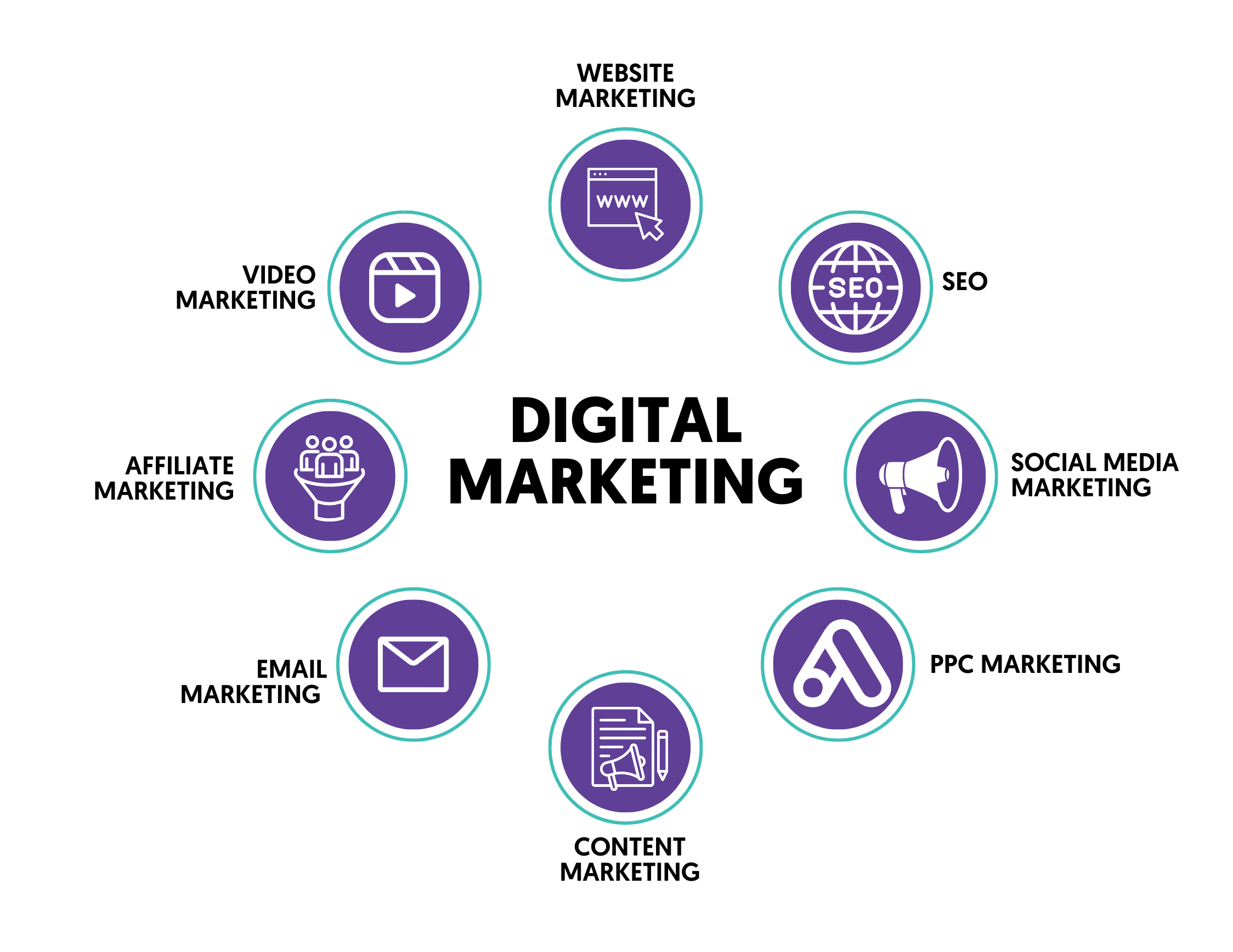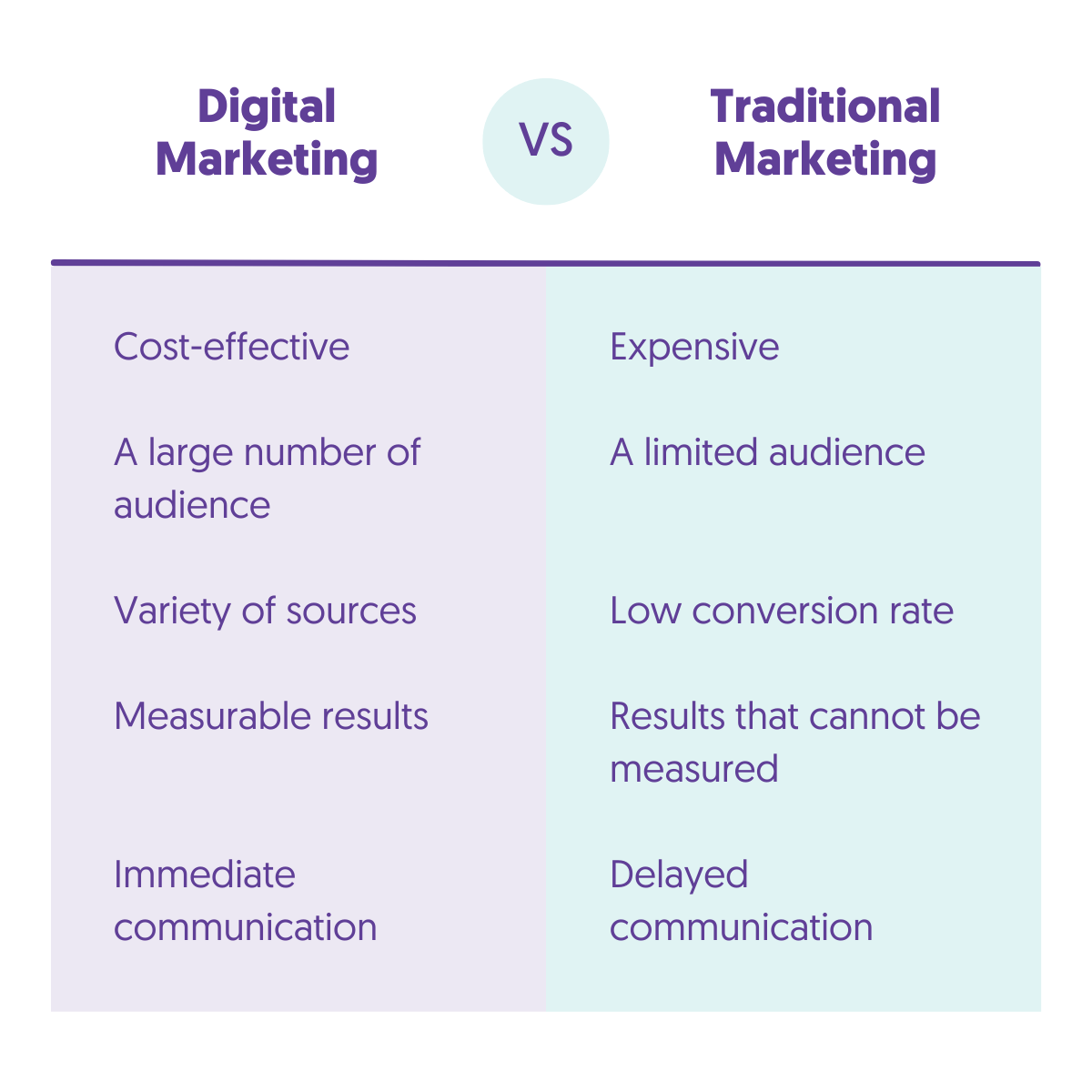Introduction To The Digital Marketing Roadmap
To Reach Their Target Audience, Promote Engagement, And Accomplish Their Marketing Objectives In The Present Digital Era, Firms Must Employ Effective Digital Marketing. However, It Can Be Frightening To Navigate The Complex World Of Digital Marketing Without A Clear Road Map. A Digital Marketing Roadmap Is A Strategy Plan That Outlines The Necessary Steps, Benchmarks, And Techniques Needed To Execute A Successful Campaign. In This Comprehensive Guide, We Will Look At The Components Of A Digital Marketing Roadmap And Provide Insights Into Each Step To Help Organizations Successfully Navigate The Digital Marketing World.
Clearly Define Your Goals And Aspirations
As a digital marketing training academy and agency, we know how difficult it is for beginners to understand what digital marketing is and how it works.
That’s why we created this guide to help you learn the basics of digital marketing and get guidance on how to start using digital marketing to promote your business or website online.
The digital marketing guide was prepared by an experienced digital marketer and trainer and will teach you in simple words, not only the theoretical part of online marketing but how to use it in practice and get real, measurable results.
What is Digital Marketing?
Digital marketing is a form of marketing for promoting and selling products or services on the Internet. It’s the process of leveraging different online marketing channels like search engines, social media networks, and email to reach your target audience.
Through digital marketing, you can find people interested in your offering, interact with them, and build trust with your brand.

Why is Digital Marketing Important?
Before we get into the specifics of digital marketing, let’s take a closer look at the most important benefits of digital marketing.
Digital marketing can help businesses reach a wider online audience and increase visibility more cost-effectively than traditional marketing methods.
It’s a great way to improve customer engagement and loyalty. Businesses can build stronger relationships with their audience by providing customers with personalized content and targeted messaging.

And with the flexibility of digital marketing, businesses can quickly adapt to changing market conditions or customer needs, giving them a competitive edge in their industry.
With the right tools and strategies, digital marketing allows businesses to connect with customers worldwide, expanding their reach beyond their local market.
Digital marketing is the only way today to grow a business by connecting with potential customers in the places where they spend most of their time.
Read the following guide to learn more about how digital marketing can benefit your business.
Defining The Course
• Prior To Embarking On Your Digital Marketing Journey, It Is Imperative That You Set Clear Goals And Objectives That Align With Your Overall Business Objectives.
• As you work toward your digital marketing goals, set SMART (Specific, Measurable, Achievable, Relevant, and Time-Bound) goals to help you track your achievement using OKR software.
Ascertain Who You Hope To Read With
Assembling Your Audience
• Understanding Who Your Target Market Is Is Essential To Creating Effective Digital Marketing Strategies. Do Market Research To Develop Personas Of Your Prospective Clients That Include Their Demographics, Hobbies, Areas Of Suffering, And Internet Behavior.
• Segment Your Audience Based On Attributes Such As Age, Gender, Location, Interests, And Previous Purchases In Order To Better Target Your Marketing Messages And Campaigns.
Conduct An Online Evaluation
Assessing Your Digital Footprint
• Examine Every One Of Your Current Digital Assets, Including Your Website, Social Media Profiles, Email Marketing Campaigns, Content Libraries, And Online Ad Networks, In Detail.
• Evaluate The Effectiveness Of Your Digital Assets, Their Alignment With Your Overarching Marketing Objectives, And Potential Areas For Optimization.
Create A Strategy For Digital Marketing
Defining Your Course
• Based On Your Goals, Insights Into Your Target Market, And The Findings Of Your Digital Audit, Develop A Strategic Digital Marketing Plan That Outlines Your Strategy, Tactics, Channels, And Resources.
• Define Your Positioning, Message, Brand Voice, And Special Value In Detail To Help Your Business Stand Out From The Competition And Connect With Your Target Market Claim.
Select The Proper Digital Channels
Getting Your Channels Organized
• Pick The Top Digital Marketing Channels And Platforms To Effectively Reach Your Target Market.
• Consider Channels Including Search Engine Optimization (SEO), Pay-Per-Click (PPC) Advertising, Social Media Marketing, Email Marketing, Content Marketing, Influencer Partnerships, And Affiliate Marketing Based On The Preferences And Actions Of Your Audience.
Create Engaging Content
Generation Of Content
• Offer Excellent, Timely, And Engrossing Content That Promotes Your Digital Marketing Objectives While Appealing To Your Target Audience.
• Use Calls-To-Action (Ctas), Attention-Grabbing Graphics, And Helpful Information To Solve Problems And Inspire Readers To Take Action. Tailor Your Content To Each Stage Of The Buyer’s Journey.
Implement Your Digital Marketing Techniques
Implementing Your Strategy
• Put Your Digital Marketing Plans Into Practice While Adhering To Your Strategic Strategy, Making Efficient Use Of The Platforms, Tools, And Technology You’ve Chosen.
• Track And Manage Your Digital Marketing Activities In Real-Time To Optimize Performance. Adjust Planning And Budgeting Decisions Based On Data-Driven Insights And Analytics.
Review And Measure Work Productivity
Tracking Your Progress
• To Track The Effectiveness And Performance Of Your Digital Marketing Campaigns, Use Metrics And Key Performance Indicators (Kpis).
• Analyze Data From Email Marketing Reports, Site Analytics, Social Media Insights, And Advertising Platforms To Determine ROI, Identify Trends, And Inform Future Optimization Choices.
Modify And Improve
Direction Reversal
• Consistently Assess And Improve Your Digital Marketing Plans, Approaches, And Strategies In View Of Comments, Performance Observations, And Market Advancements.
• To Stay One Step Ahead Of The Competition And Adapt To Shifting Customer Expectations, Try Out New Tactics, Resources, And Distribution Techniques.
Synopsis
Companies Need To Have A Well-Defined Digital Marketing Plan In Order To Effectively Navigate The Complex Digital Environment. By Establishing Specific Goals, Understanding Their Target Market, Conducting A Digital Audit, Developing A Strategic Plan, Selecting The Right Channels, Generating Interesting Content, Implementing Tactics, Assessing Outcomes, And Iterating For Improvement, Businesses Can Achieve Their Digital Marketing Objectives And Succeed. By Using A Planned And Data-Driven Approach, Businesses Can Leverage Digital Marketing To Connect, Engage, And Convert Their Target Audience. Eventually, This Will Spur Expansion And Optimize Return On Revenue (ROI) In The Age Of Digitalization.

